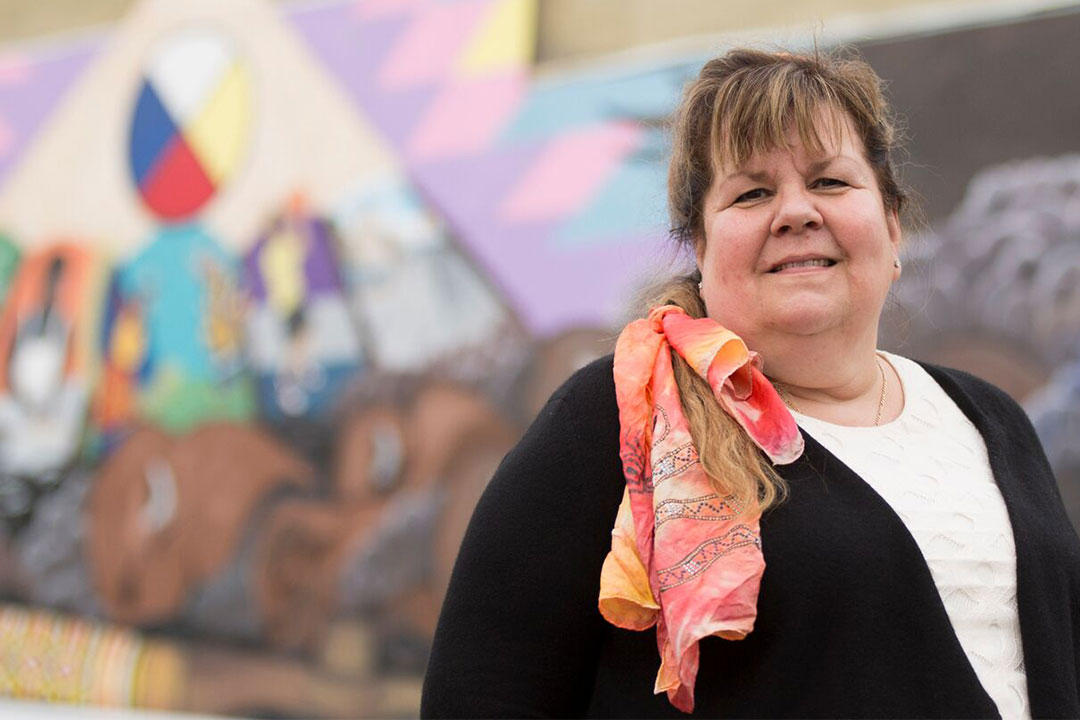
Indigenous virtual conference to highlight lessons learned from COVID-19 to address viral hepatitis
The organizing committee of the World Indigenous Peoples’ Conference on Viral Hepatitis is hosting a virtual conference about lessons learned from the COVID-19 pandemic by global Indigenous communities that are also impacted by viral hepatitis.
The committee had planned on holding its third global congress in Saskatoon in September 2020. That event has been postponed to June 2022 because of the pandemic. In the meantime, the committee is hosting its second online mini conference on November 23. The first virtual conference was held in November 2020 and attracted more than 125 participants from 10 countries.
Indigenous health-care experts, Elders and people with lived experience, along with non-Indigenous allies, will address how they are using COVID-19 models to refocus on testing, treatment and care for viral hepatitis.
Dr. Alexandra King, Cameco Chair of Indigenous Health and Wellness at the University of Saskatchewan (USask) and chair of the committee, said that Indigenous sovereignty means communities are taking control over their health, resulting in some innovative responses to hepatitis that have resulted from this pandemic.
“COVID-19 demanded considerable attention from community leaders and our health system, but as more people are vaccinated, now is the time to address viral hepatitis, taking what has been learned from the pandemic, such as mass testing and mass vaccination,” King said.
Many Indigenous communities have much higher than average rates of viral hepatitis and less than adequate health care, often a result of the lasting and ongoing impacts of colonialism, inadequate access to immunization and treatment, and inadequacies in the provision of culturally-safe and responsive health care to Indigenous people.
For example, self-identified Indigenous people in Canada are seven times more likely to contract hepatitis C than non-Indigenous people. Aboriginal and Torres Strait Islanders in Australia are approximately four times more likely to contract hepatitis B, and Māori and Pasifika have twice the national rates of hepatitis B. Indigenous communities need to prevent both diseases, providing well-delivered hepatitis vaccination programs, while limiting the spread of COVID-19.
“We need to continue to aggressively test and treat viral hepatitis, using COVID-19 approaches. This mini-conference will be a great opportunity for us to share our successes and learn from each other,” King said.
The mini conference will feature a keynote presentation from Métis health researcher and advocate Carrielynn Lund from Communities, Alliances & Networks (CAAN), who will speak about work being done in Indigenous languages to address hepatitis C and HIV in communities.
Indigenous hepatitis experts will discuss how Indigenous communities around the world are coping with COVID-19 while continuing to address viral hepatitis. Indigenous people with lived experience of hepatitis will share their own experiences of living through the pandemic and there will be welcome messages from a Cree Elder and from King, chair of the World Indigenous Peoples Conference on Viral Hepatitis. There will also be cultural performances from global Indigenous artists. Participants from around the world will be joining the mini conference.
The online mini conference is free and open to anyone interested. More information and registration can be found at https://wipcvh.org/virtual-mini-conference/.
Article re-posted on Nov 19.
View original article.
